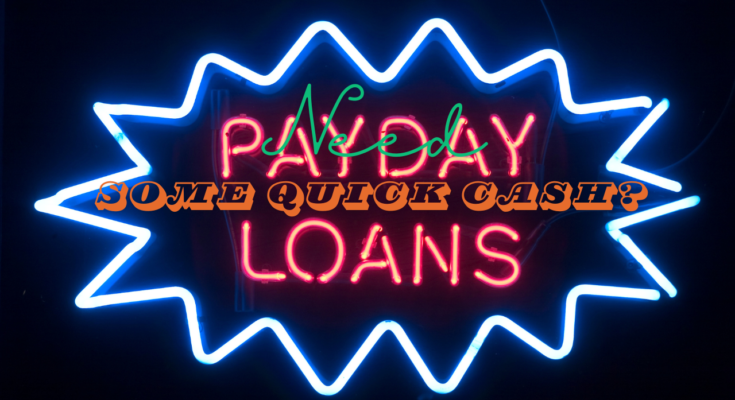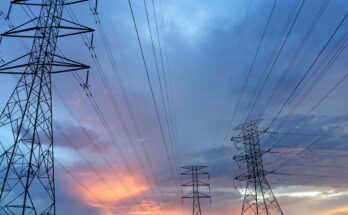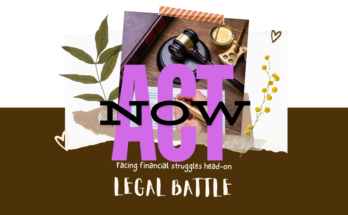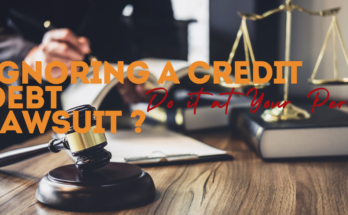Payday loans provide quick cash for those in need, offering short-term loans with high costs. They are designed to cover expenses until the next paycheck, yet they can lead to debt due to their high fees and interest rates. This guide will cover all aspects of payday loans, including their operation, eligibility, and alternatives.
This guide aims to educate about payday loans. It will detail their functioning, eligibility criteria, and application process. Additionally, it will discuss the associated costs, regulations, and other financial options. By the end, you will have a comprehensive understanding of both the advantages and disadvantages of payday loans, enabling you to make informed financial decisions.
Key Takeaways
- Payday loans provide quick cash advances but can lead to a cycle of debt due to high fees and interest rates.
- Payday loan costs typically range from $10 to $30 per $100 borrowed, with annual percentage rates (APRs) that can exceed 400%.
- Eligibility for payday loans is often based on income and employment status, with no credit check required.
- Payday loan regulations and legality vary by state, with some states banning or limiting these loans.
- Alternatives to payday loans include personal loans, cash advance apps, and borrowing from friends or family.
What is a Payday Loan?
A payday loan provides fast cash based on your income and upcoming paycheck. It is a short-term, high-cost loan typically used for immediate financial needs. However, it is crucial to understand several key factors before obtaining one3.
Definition and Key Features of Payday Loans
Payday loans are unsecured and require quick repayment, typically within 2 to 4 weeks. Due to their high risk for lenders, they come with steep fees and interest rates, sometimes with APRs as high as 391% in certain states3.
To qualify for a payday loan, proof of employment, a bank account, and identification are necessary. In Washington, you can borrow up to $700, with a maximum repayment period of 45 days, though it’s often just 14 days3.
Lenders in Washington may charge up to 15% on the first $500 borrowed and 10% on the next $200. The industry profits significantly, with many loans featuring interest rates above 400%4.
There are often more affordable credit alternatives to payday loans, such as personal lines of credit, credit card cash advances, or overdraft fees. Lenders in Washington are required to disclose all fees and interest rates upfront3.
In summary, payday loans offer a quick financial solution for immediate expenses until the next paycheck but at a high cost and with short repayment terms. It’s crucial to fully understand these loans before deciding to take one345.
HOW DO PAYDAY LOANS WORK? DO I QUALIFY FOR A PAYDAY LOAN?
Payday loans provide quick cash for a short term, typically not exceeding $500. Borrowers agree to repay the loan along with fees by their next payday, usually within 2-4 weeks6.
To qualify for a payday loan, you must be employed, have a bank account, and a proper identification card7. Credit checks are not performed by lenders. Once approved, the borrower receives the cash and is expected to return it, plus fees, by the subsequent payday.
The costs associated with payday loans are substantial, with annual percentage rates (APRs) often exceeding 391%. According to the CFPB (Consumer Financial Protection Bureau), approximately 12 million individuals utilize these loans annually6. However, 80% of these loans are not repaid on time6.
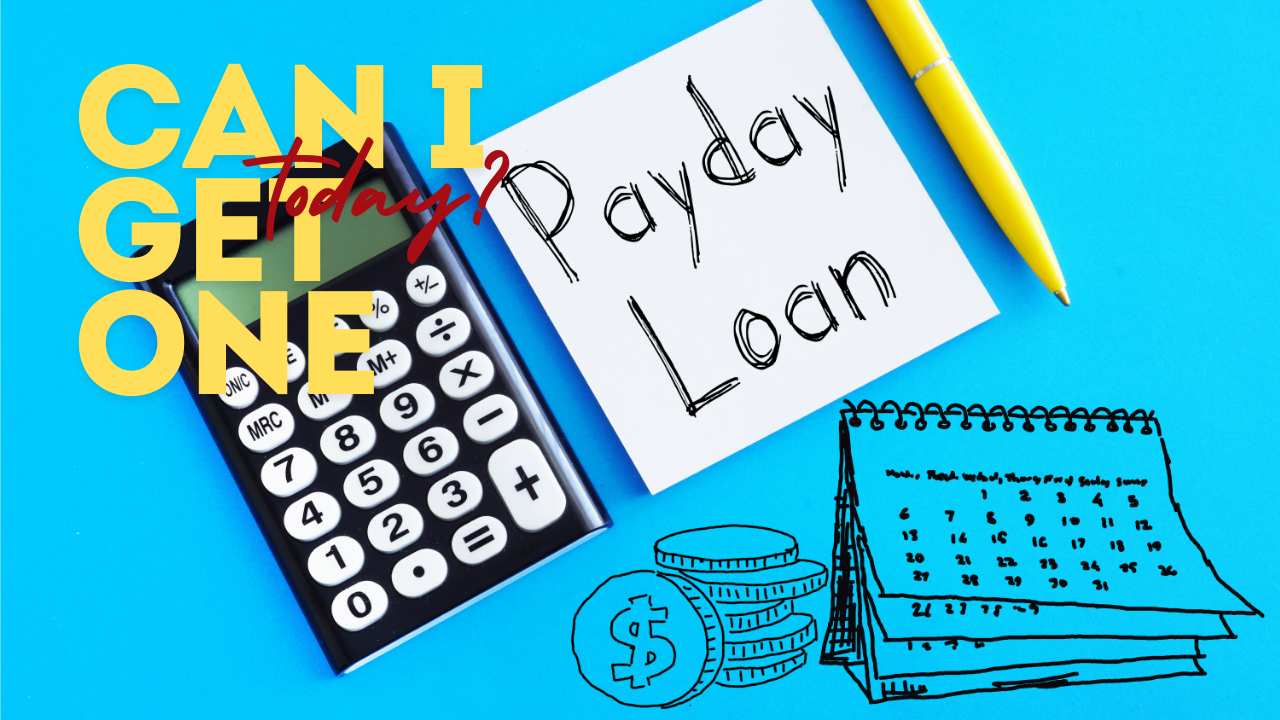
Consider the risks associated with payday loans prior to obtaining one. Although they provide quick cash, they can result in debt. Understanding the mechanics of these loans is crucial. This knowledge will assist you in determining if they are suitable for your financial situation687.
Payday Loan Requirements
Documents Needed to Apply for a Payday Loan
Obtaining a payday loan typically requires a few readily available documents. These include a valid government-issued ID, such as a driver’s license. You’ll also need to provide proof of income with a pay stub and have an active bank account. Some lenders may request a blank check to facilitate the repayment of the loan.
The process of acquiring a payday loan is straightforward. Many lenders do not conduct thorough credit checks or verify your ability to repay the loan. While this may be advantageous for individuals with poor credit ratings, it also signifies that payday loans can be hazardous and expensive.
To qualify for a payday loan, generally, you must have:
- A valid photo ID (driver’s license, state ID, or passport)
- Proof of how much you make (recent pay stub or bank statement)
- An active checking account
- A blank check from your bank account (this might be asked for)
Collecting the necessary documents can simplify the process of applying for a payday loan and may increase the likelihood of approval for the desired amount.
Consider this: while payday loans may seem convenient, they come with substantial fees. The high-interest rates associated with these loans can result in increased debt. Therefore, it’s important to carefully consider your options before deciding to take out a payday loan.
Here’s a wise tip: Before taking out a payday loan, make sure you understand the terms and costs involved. This knowledge is crucial and can prevent significant financial stress.
“Payday loans are a quick fix, but they can get you stuck in debt if not used wisely. Always check the details before you take one out.”
Understanding the requirements for a payday loan application is crucial. It encourages consideration of alternative financial solutions that may be more beneficial for your long-term financial health.
The Application Process
Applying for a payday loan is straightforward. You must be 18 years of age or older. Lenders will require a valid ID, such as a Social Security Number or an ITIN.
Firstly, provide proof of income through bank statements or pay stubs. You will also need to provide details of a personal bank account. Ensure you have an active email and phone number to receive updates.
Applications can be made in person or online, with the possibility of receiving funds on the same day. Approval processes are typically quick, allowing for immediate disbursement of funds, although some lenders may take until the next business day.
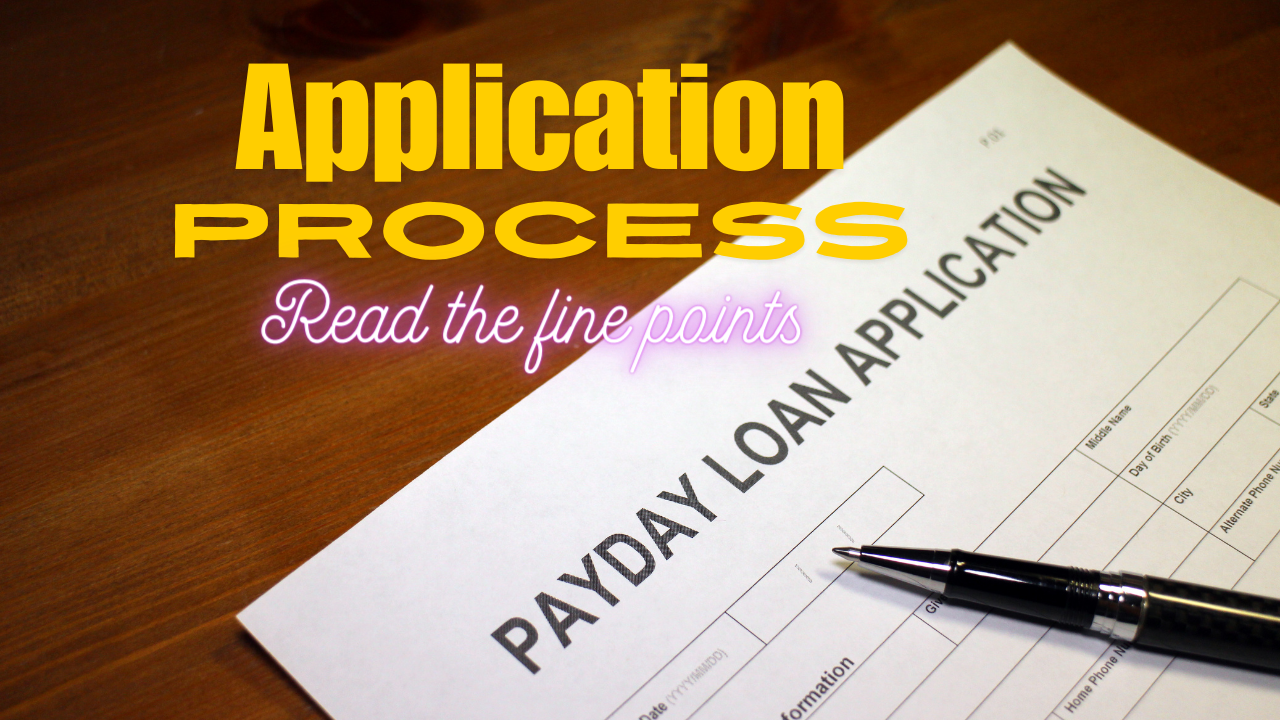
Upon approval, you commit to repaying the loan, along with any fees, by your next payday, which typically falls within a few weeks. The funds can be received in cash, via check, or through direct deposit.
Keep in mind that the regulations and procedures may vary depending on your location and the lender. Some jurisdictions may impose additional restrictions, such as a limit on the number of loans you can have simultaneously.
The procedure is designed for quick and easy access to financial assistance. However, it is crucial to fully comprehend the terms of the agreement, as payday loans are known for their high expenses.
Repayment and Costs
Understanding Payday Loan Fees and Interest Rates
Payday loans come with extremely high fees and interest rates. These short-term, high-cost loans can have annual percentage rates (APRs) as high as 780%, with an average APR of around 400%15. Lenders typically charge a fee of $10 to $30 for every $100 borrowed16. For example, borrowing $300 with a $45 fee results in an APR of 391%16.
You are required to repay the entire loan, including fees, by your next paycheck, usually within 2-4 weeks17. If you can’t repay on time, additional charges may apply, and extending the loan will incur more costs and interest15. This can easily lead to a cycle of heavy debt.
| Loan Amount | Loan Duration | Fees | APR |
|---|---|---|---|
| $300 | 14 days | $45 (15% of loan amount) | 391% |
| $500 | 4 months | $110 to $1,000 | Up to 400% |
Payday loans do not require collateral, and the full amount is typically due with the next paycheck17. . Not paying on time doesn’t directly impact your credit score16.
However, if the debt is sold, collectors may get involved, which can harm your credit score. The difficulty in escaping payday loan debt demonstrates their financial advantage for lenders15.
Regulation of the payday lending industry has increased. In 2016, the Obama administration started to protect consumers from extremely high-interest loans. The Consumer Financial Protection Bureau (CFPB) bolstered these protections in 2017 15.
More recently, under the Biden administration, the CFPB implemented stricter regulations that took effect on June 13, 2022, reflecting ongoing changes in the sector15.
“Payday loans are typically no more than $500, with annual percentage rates (APRs) that can be as high as 400%. In contrast, traditional personal loans usually have APRs capped at 36%.”16
Despite the risks and high costs, payday loans remain an option for those without traditional bank accounts. Some lenders even accept prepaid cards. However, the extremely high-interest rates can lead to significant financial problems. Many consumers view payday loans as risky due to their potential to create debt traps151617.
Payday Loan Regulations and Legality
Payday loans are governed by a variety of laws throughout the U.S. While some states have prohibited them, others have imposed restrictions on fees and interest rates15. For instance, 16 states along with Washington D.C. have outlawed payday loans.
In California, payday lenders may charge fees up to 15% of the loan’s value. For a 14-day loan of $300, this equates to an annual percentage rate (APR) of 460%15. However, not all jurisdictions permit such steep fees. Payday loans often carry high interest rates, with the average APR around 400%, rising to as much as 780%15.
New regulations in the U.S. require payday lenders to verify a borrower’s ability to repay the loan, a measure designed to prevent individuals from falling into a debt cycle due to payday loans. These regulations were implemented on June 13, 2022, during the Biden administration15.
The debate and legal battles over payday loans persist. Some states have capped the interest rates that payday lenders can charge at 36%, including Arkansas, New Jersey, and others. Nevertheless, 29 states still authorize payday loans with high interest rates. Only three states have completely banned them18.
“Payday loans are usually unsecured, meaning no collateral is needed, and they are often paid off at once. When someone pays on time, it doesn’t hurt their credit. But failing to pay can decrease your credit score and lead to debt collection15.”
As the laws governing payday loans continue to evolve, it is vital for individuals to stay informed about the regulations in their respective states. Being knowledgeable about these laws and exploring alternative lending options can help prevent issues associated with payday loans.
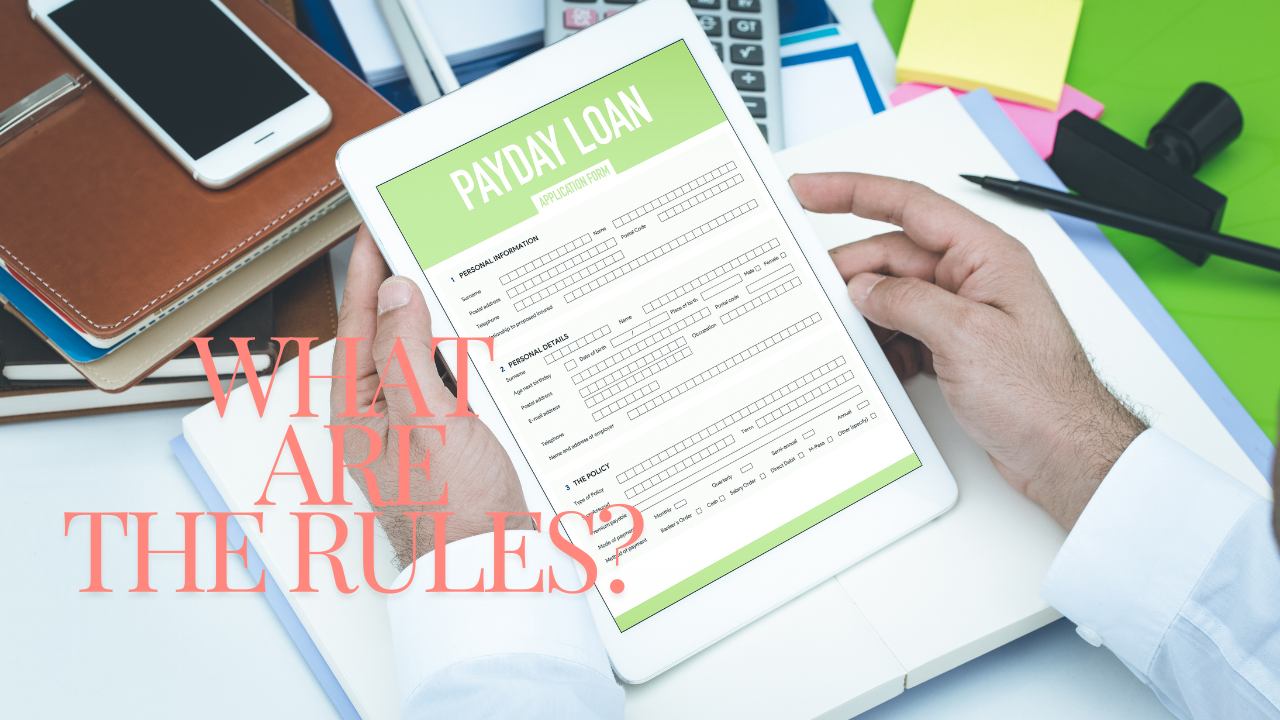
Alternatives to Payday Loans
Payday loans may appear beneficial for quick cash needs, but they typically entail steep expenses and are not advisable for most individuals. Fortunately, there are more reliable and safer alternatives available for emergency situations.
Exploring Safer and More Affordable Options
Consider cash advance apps like Earnin, Dave, and Brigit, which allow you to access a portion of your paycheck early without any interest or fees20.
Personal loans from credit unions or online lenders are also an option. They typically offer lower interest rates, ranging from 6.7% to 36%. Although there may be some fees, they are generally less expensive than payday loans. Credit unions may also provide Payday Alternative Loans (PALs), which have more favorable rates than conventional payday loans and are a good borrowing option20.
Another alternative is borrowing from friends or family, which usually incurs no additional fees and helps avoid the high costs associated with payday loans21.
Community organizations or nonprofits can offer help if you’re in dire need. They provide emergency financial aid without the burden of high interest loans20.
Discussing payment plans with your creditors or service providers is another viable strategy. It can help you manage your finances without resorting to a payday loan20.
While these options may not provide funds as quickly as a payday loan, they are safer and more affordable, preventing you from falling into greater debt in the long term.
“Payday loans should be the last resort, not the first option. Explore safer and more affordable alternatives to protect your financial well-being.”
Pros and Cons of Payday Loans
Payday loans provide quick cash, yet they carry certain risks. It is crucial to understand the advantages and disadvantages of these loans prior to utilizing them.
Potential Benefits of Payday Loans
- Payday loans can assist with unexpected expenses. They are quick to obtain and can be a lifeline during emergencies.
- Obtaining a payday loan is often easier than securing other types of loans. Even if you have poor credit, you may still be eligible for a payday loan.
- Applying online is straightforward and can be completed quickly. You may receive the funds within a few hours.
Significant Drawbacks of Payday Loans
- The fees are significantly high, with rates surpassing those of credit cards. Such costs can rapidly accelerate the growth of your debt.
- They can lead to a harmful cycle of debt. Quick repayment deadlines often compel individuals to take out additional loans.
- Lenders seldom verify your ability to repay the loan, which can lead to further financial difficulties.
- Failing to pay a loan can result in increased bank fees and the potential closure of your account.
- Payday loan shops disproportionately impact minority groups, often being situated in these neighborhoods and charging higher rates.
Payday loans are frequently more hazardous than beneficial. For many individuals, the costs associated with these loans are prohibitively high, rendering them an unfavorable option.
“The payday loan industry thrives on exploiting vulnerable populations, trapping them in a vicious cycle of debt. The astronomical interest rates and predatory practices must be addressed to protect consumers from financial ruin.”
Payday loan usually target low-income communities, and according to Keith Corbett, Executive Vice President of the Center for Responsible Lending, payday lending in communities of color is comparable to Jim Crow laws.24
| Loan Type | Typical Interest Rate |
|---|---|
| Payday Loans | 400% APR |
| Personal Loans | 4% – 36% APR |
| Credit Cards | 12% – 30% APR |
| Debt Management Programs | 8% – 10% APR |
The table clearly shows how expensive payday loans can be. They charge much more than other common loans24.
Ultimately, payday loans tend to present more hazards than advantages. They come with exorbitant interest rates and can be problematic for certain individuals. It’s advisable to consider alternative options prior to resorting to payday loans.
Tips for Responsible Borrowing
Borrowing payday loans responsibly is crucial. To avoid falling into a debt trap, take certain precautions. Firstly, only borrow an amount you can comfortably repay by your next payday26. Typically, payday loans are less than $500. Borrowers usually issue a post-dated check for the loan amount plus a fee26.
Understanding the total cost of the loan, including all fees and interest rates, is essential26.Lenders may assess your income and credit history, but poor credit does not necessarily preclude you from obtaining a payday loan26. It’s important to have a repayment plan to avoid additional charges and interest from rolling over or extending the loan26.
Being aware of the risks associated with payday loan repayment is also vital 27. Failing to repay on time can lead to exorbitant interest rates27. Transferring the debt from one loan to another can lead to a debt cycle and additional fees27.
To avoid the pitfalls of payday loans, consider alternative options. Borrowing from friends or securing personal loans from banks might be viable. Credit card cash advances can offer lower interest rates. Monitor your bank account for any unauthorized withdrawals and be prepared to assert your rights if a lender behaves inappropriately26.
Adhering to these guidelines for responsible payday loan borrowing can help you access necessary funds without risk. Payday loans provide early access to funds from your upcoming paycheck for urgent needs without requiring collateral. However, it’s imperative to understand all the loan terms, including fees and repayment options, before agreeing to the loan.
“The key to responsible payday loan borrowing is to only borrow what you can afford to repay on your next payday, and to have a plan in place to do so.”
Conclusion
Payday loans offer a quick financial lifeline for those facing urgent cash needs, with a simple application process and fast approval. This convenience is particularly attractive to individuals with poor credit or those who cannot access traditional loans. However, the high costs, including steep fees and interest rates often exceeding 400% APR, can quickly turn a short-term solution into a long-term financial burden. Many borrowers find themselves trapped in a cycle of debt due to the difficulty of repaying on time.
This guide has provided an in-depth look at payday loans, explaining their operation, eligibility criteria, and the significant costs involved. It has also explored the regulatory landscape, highlighting how laws vary widely across states—some with stringent regulations or outright bans, while others have minimal restrictions. Furthermore, the guide has emphasized several safer and more affordable alternatives, such as personal loans from credit unions, cash advance apps, borrowing from friends or family, and seeking help from community organizations. These alternatives offer more sustainable ways to manage financial emergencies without the crippling costs associated with payday loans.
Given their high costs and potential to create a cycle of debt, payday loans should be considered a last resort. By educating yourself on how payday loans work, understanding the associated risks, and exploring safer alternatives, you can make more informed financial decisions that safeguard your long-term financial health. The key to managing financial emergencies lies in being well-informed and cautious, ensuring that any solution you choose does not lead to further financial hardship. With the right knowledge and resources, you can navigate financial challenges more effectively and avoid the pitfalls of high-cost payday loans.
FAQ
What is a payday loan?
A payday loan provides quick cash based on your income. It’s for a short time and costs a lot. Usually, the interest rate is more than 400% per year.
How do payday loans work, and do I qualify?
They give you a cash advance for a short time. In return, they take a post-dated check or get into your bank. To get one, you need income, a bank account, and an ID. They don’t check your credit.
What are the main requirements to apply for a payday loan?
You need an ID, a pay stub, and a bank account. They might ask for a blank check, too.
What is the payday loan application process like?
It’s simple and can be done in person or online. You show your documents, they review it, and you might get the money that day.
What are the costs and fees associated with payday loans?
The fees and interest rates are very high. They might charge $10 to $30 for every $100 borrowed. You have to pay it all back, plus fees, in 2-4 weeks.
How are payday loans regulated?
States have their own laws on payday loans. Some are very strict. The federal government has rules, too. But laws are changing all the time.
What are some alternatives to payday loans?
There are a lot of other ways to get money. You can use interest-free apps, get a personal loan from a credit union, or ask friends or family. Community groups can also help.
What are the pros and cons of payday loans?
The good thing is they are fast and easy. But they cost a lot and can cause debt problems. They also don’t check if you can pay it back.
How can I borrow responsibly if I do take out a payday loan?
Only borrow what you can pay back. Understand all the costs. Have a clear plan to pay it back on time. Stay away from getting more loans. Look at other options. Keep an eye on your bank. Know your rights.
Disclaimer:
The topics discussed in this blog are for educational and informational purposes only. They do not constitute formal advice to act upon in any way. Readers should consult with a qualified professional before making any decisions or taking any actions based on the information provided. The author and the blog are not liable for any consequences resulting from the use or reliance on the information presented.
Source Links
- https://www.nerdwallet.com/article/loans/personal-loans/what-is-a-payday-loan – What Is a Payday Loan and How Does It Work? – NerdWallet
- https://www.investopedia.com/ask/answers/102814/what-are-basic-requirements-qualify-payday-loan.asp – What Are the Basic Requirements to Qualify for a Payday Loan?
- https://www.washingtonlawhelp.org/resource/payday-loans-what-to-do-if-you-get-caught-in – WashingtonLawHelp.org | Helpful information about the law in Washington.
- https://consumer.georgia.gov/consumer-topics/payday-loans – Payday Loans
- https://www.cash1loans.com/blog-news/how-do-payday-loans-work – What Is a Payday Loan and How Does It Work?
- https://www.incharge.org/debt-relief/how-payday-loans-work/ – How Payday Loans Work: Interest Rates, Fees and Costs
- https://www.acecashexpress.com/payday-loans/requirements/ – Payday Loan Requirements – Anyone May Apply | ACE Cash Express
- https://www.marketwatch.com/guides/personal-loans/what-is-a-payday-loan/ – What Is a Payday Loan and How Does It Work? (2024 Guide)
- https://www.capitalone.com/learn-grow/money-management/understanding-payday-loans/ – Payday Loans: What to Know Before You Borrow | Capital One
- https://www.creditninja.com/what-do-i-need-for-a-payday-loan/ – What do I need for a payday loan?
- https://paydayloaninfo.org/how-payday-loans-work/ – How Payday Loans Work | Payday Loan Information for Consumers
- https://www.checkcity.com/loans-101/what-i-need-for-a-payday-loan – What Do I Need to Get a Payday Loan?
- https://www.speedycash.com/faqs/payday-loans/requirements/ – Payday Loan Requirements | Speedy Cash
- https://www.bankrate.com/loans/personal-loans/payday-loans/ – What You Need To Know About Payday Loans | Bankrate
- https://www.investopedia.com/terms/p/payday-loans.asp – What Is a Payday Loan? How It Works, How to Get One, and Legality
- https://www.lendingtree.com/personal/understanding-payday-loans/ – What Is a Payday Loan? | LendingTree
- https://www.consumerfinance.gov/ask-cfpb/what-is-a-payday-loan-en-1567/ – What is a payday loan? | Consumer Financial Protection Bureau
- https://paydayloaninfo.org/state-information/ – Legal Status of Payday Loans | Payday Loan Information for Consumers
- https://ncdoj.gov/protecting-consumers/credit-and-debt/payday-loans/ – Payday Loans
- https://www.incharge.org/debt-relief/payday-loan-alternatives/ – 12 Alternatives to Payday Loans for Urgent Financial Needs
- https://www.zayzoon.com/blog/alternatives-to-payday-loans-no-credit-check – 7 alternatives to payday loans that don’t need a credit check
- https://www.cnbc.com/select/best-payday-loan-alternatives/ – Looking for a payday loan for quick cash? Consider these 4 safer alternatives
- https://fortune.com/recommends/loans/what-is-a-payday-loan/ – Payday loans: How they’re used and how to avoid them
- https://www.self.inc/blog/pros-cons-payday-loans – How Payday Loans Work: Pros & Cons – Self. Credit Builder.
- https://www.debt.org/credit/payday-lenders/ – Payday Loans: Disadvantages & Alternatives
- https://www.invoicetemple.com/blog/how-to-use-payday-loans-responsibly-a-comprehensive-guide/ – How To Use Payday Loans Responsibly: A Comprehensive Guide
- https://smartasset.com/personal-loans/how-do-payday-loans-work – How Do Payday Loans Work?
- https://www.checkcity.com/loans-101/how-payday-loans-work – How Do Payday Loans Work?
- https://lendingbear.com/blog/what-is-a-payday-loan/ – What is a Payday Loan? Learn All The Details in This Guide!
- https://www.sacbee.com/news/business/article274204805.html – What Do You Need to Know Before Getting a Payday Loan?
- https://www.forafinancial.com/blog/working-capital/payday-loan/ – What Is a Payday Loan?
- https://youtu.be/U2uzHK5cYUk/- What Is a Payday Loan? Payday Loans Explained.

